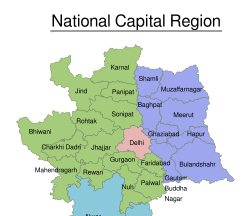Mohammad Yunus, a prominent chief adviser, has attributed Bangladesh’s ongoing crisis to a deliberate effort aimed at restoring Indian dominance in the country, a claim conveyed by Mahmudur Rahman Manna, president of Nagorik Oikya. Following a high-profile meeting on Sunday that included multiple political factions, Manna shared Yunus’s assertion that this development represents a carefully orchestrated “conspiracy” targeting the sovereignty of Bangladesh.
The meeting, convened to address the escalating political and economic instability, underscored Yunus’s view that the nation faces significant external interference, threatening its independence and future. According to Manna, Yunus emphasised the need for a unified national front to counteract this influence, suggesting that only through collective solidarity can the country safeguard its autonomy and restore stability.
The backdrop to these claims involves deepening political turmoil marked by widespread protests, a faltering economy, and contentious relations with neighbouring countries. Bangladesh’s geopolitical position has often made it a focal point for regional power dynamics, with India historically exerting considerable influence over its internal affairs. Yunus’s statement reactivates longstanding fears among segments of the population and political leadership about external pressures shaping domestic outcomes.
Analysts note that the Bangladesh-India relationship has been complex and multifaceted, ranging from cooperation on trade and security to disputes over water sharing, border management, and migration. Recent years have seen a tightening of diplomatic ties, but also episodes of friction, including accusations of interference in Bangladesh’s political landscape. The framing of the current crisis as part of a broader plan to re-establish Indian hegemony resonates with nationalist narratives that view such involvement as a threat to national sovereignty.
Experts assessing the situation highlight that Bangladesh’s internal challenges—ranging from inflation and energy shortages to governance issues—have been exacerbated by external factors, including global economic volatility and geopolitical rivalries. However, they caution against oversimplifying the crisis as solely the product of foreign conspiracies, pointing to domestic political divisions and governance lapses as significant contributors.
Yunus’s call for national unity, as relayed by Manna, taps into a broader discourse advocating for cross-party cooperation amid mounting tensions. Bangladesh’s political scene has been marked by rivalry between the ruling party and opposition groups, often resulting in polarisation that hinders effective policymaking. A unified stance against perceived external threats could potentially realign political priorities towards national stability.
The assertion of a conspiracy involving India has drawn mixed reactions across Bangladesh’s political spectrum. Supporters of Yunus and nationalist factions have embraced the narrative, viewing it as a necessary warning against covert attempts to undermine Bangladesh’s sovereignty. Conversely, critics argue that attributing the crisis mainly to foreign interference risks diverting attention from urgent domestic reforms and governance challenges that require immediate action.
Economic indicators present a sobering picture that complicates the political discourse. Inflation rates have surged, the local currency has weakened, and foreign investment has been cautious, all of which place additional strain on government resources and public confidence. These factors feed into the narrative of vulnerability, making accusations of external meddling more potent in public perception.
The geopolitical dimension of Bangladesh’s crisis also involves other regional and global players, who observe the situation with strategic interest. Bangladesh’s significance as a populous nation with growing economic potential means that shifts in its internal stability reverberate beyond its borders, affecting trade routes, security alliances, and diplomatic balances.
International observers note that while India remains a key partner, there is increasing scrutiny over how influence is exercised. Bangladesh’s leadership has expressed a desire to balance relations carefully, engaging with a range of partners to diversify its economic and strategic dependencies. This balancing act is critical as the country seeks to navigate pressures from larger neighbours and global powers alike.
Meanwhile, political voices within Bangladesh continue to debate the best course forward. The emphasis on unity championed by Yunus and echoed by Manna suggests an awareness that fragmented politics weaken the country’s capacity to address both internal issues and external challenges. Whether this call for cohesion will translate into tangible political cooperation remains uncertain amid entrenched rivalries.
The framing of the crisis as a conspiracy does not exist in isolation but reflects a broader historical context. Bangladesh’s struggle for independence in 1971, and subsequent political developments, have often been influenced by regional power plays. The enduring wariness of Indian influence reflects a legacy of mistrust that occasionally resurfaces in public discourse, particularly during periods of instability.



